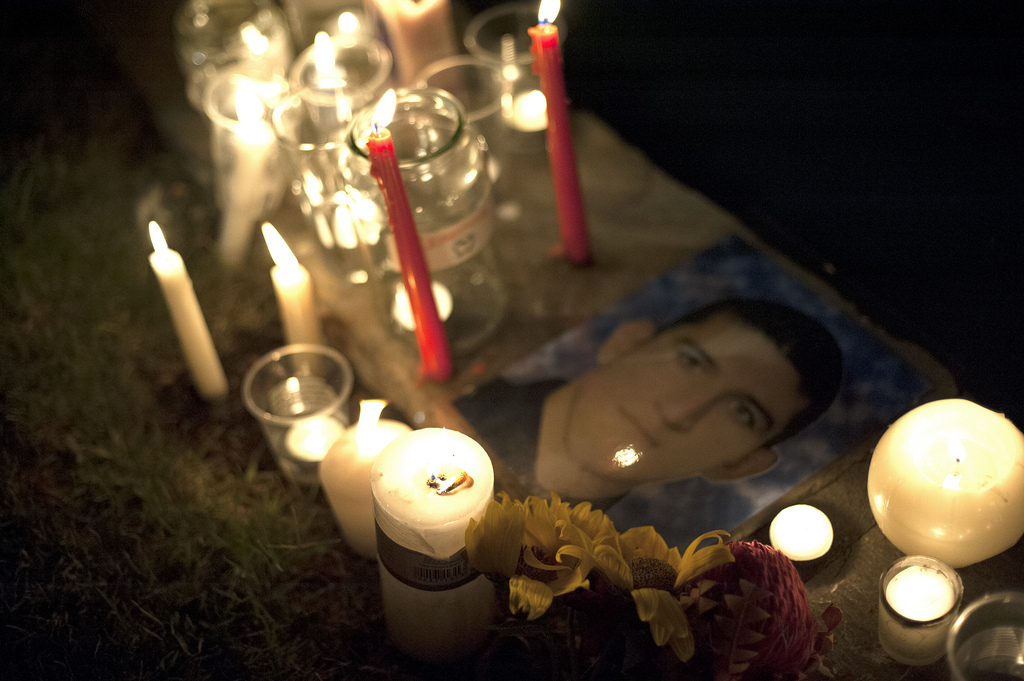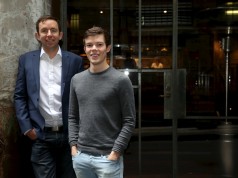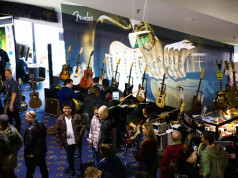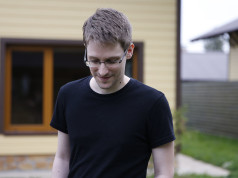Daniel Scaysbrook joined Amnesty International in 2010 as the National Youth Coordinator, working with young people across schools, universities and different youth communities in inspiring activism and human rights education. Daniel has ten years of experience in grassroots mobilisation and community organising working across trade unions, environmental, refugee and LGBTI campaigns . He has a Bachelor of Arts (Communications) and is passionate about engaging young leader nationally and internationally in change making around our human rights campaigns.
Imagine living in constant fear for the safety of you and your family, forced to flee your own home and country, after constant attacks and threats from the very people you’re meant to trust: your own government. It sounds like a nightmare situation, but for millions of people, this is a reality. Their only certainty is that international law protects their right to seek asylum elsewhere, regardless of how they fled and where to.
It sounds pretty obvious, but to a lot of Australians, Article 14 of the Universal Declaration on Human Rights (UDHR) is not common knowledge. I reminded a high school student of this recently while talking about the asylum seekers that remain in limbo, detained in inhumane conditions in Australian offshore detention facilities. That students response left me, for the first time in a long time, speechless, when he stated confidently: “well, that’s not as it should be”. This 16 year old from a school in Sydney had hit the proverbial nail on the head and expressed the disappointment many of us feel on a daily basis when it comes to the Australian Government’s treatment of asylum seekers.
It was this exact sentiment that had led to me becoming an activist. I went to university in Newcastle with the intention of becoming a journalist but I was quickly sidetracked by the world of activism. I remember vividly that first day, I wasn’t sure if I was cool enough or smart enough. After a few weeks I got my head around the timetable and made a few friends. It was through these networks I ended up in a meeting of Amnesty International’s Refugee Action Group and that’s where I met a third year student who explained to me what was happening to refugees. I listened in shock, determined that I would do everything I could to change things for asylum seekers in Australia, for the better.
At 18 I travelled to the Baxter Immigration Detention Centre in South Australia. As the bus pulled up outside the centre, my stomach dropped as I stared at what looked like a cage in the middle of the desert, surrounded by fences, where asylum seekers were surrounded by dirt and sky. It was then I thought to myself that very same phrase the wide eyed student had said to me, transport my mind back to teenage memories and the very reason I ended up at Amnesty International: ‘this is not as it should be’.
Years later when the government started to talk about re-introducing offshore processing and when we saw asylum seekers sent to Nauru and Manus island, this feeling of frustration grew stronger.
When my colleagues returned from Manus Island in November 2013 and I read our report about these men, many who are younger than me, being psychologically destroyed, my disappointment reached a new low.
When our government advised they would respond to our recommendations about how to improve the lives of people in these situations, and failed to do so, this feeling turned from frustration to anger.
When I saw the coverage of the riots on Manus Island and heard of the tragic death of Reza Berati, a 23 year-old Iranian asylum seeker, who was found with his skull crushed in the compound, I truly felt ashamed.

Reza like so many of the men, women and families currently on Nauru and Manus had simply sought a better life. He had broken no laws and was guilty of no crime. And yet, his family will never get to see their son, brother, cousin and friend, reach his true potential. Reza died under our governments care. Could he have been one person of the ninety per cent of those who arrive by boat that are found the genuine refugees? We’ll never know.
The week after Reza’s death, I saw a community united by shame, with vigils all over the country as people grieved the death of this young man and the policy that in the words of Amnesty’s report is: ‘breaking people’.
A teenage school student had captured in one sentence, why we need to care. I have faith that, just like him, with the overwhelming evidence before us, the death and the inhumanity, so too can all Australians. ‘Is this the world as it should be?’. If, like him, your answer is ‘no’, then you should get involved in spreading the message and tell people about what’s actually happening on Manus. Because it’s only when our voices are united, we have the chance to be heard.
For students that agree that ‘this is not as it should be’, download Amnesty International’s schools pack here and find out how you can support the Refugee campaign.
If you have any question for Dan about his work at Amnesty International, you can contact him via the Amnesty International Australia Twitter or Facebook page.









